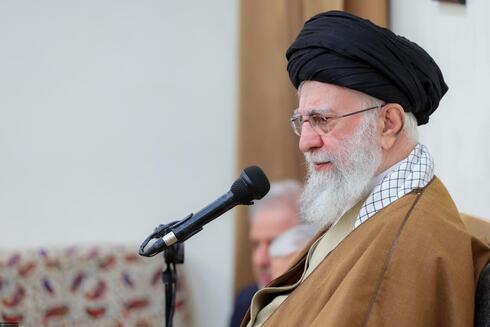Israeli officials indicated on Sunday that they are open to ending military operations against Iran, contingent on Supreme Leader Ayatollah Ali Khamenei calling for a cessation of hostilities and pursuing a resolution to the ongoing conflict.
These remarks followed a U.S. strike on Iran’s key nuclear facilities, occurring after more than a week of consistent Israeli assaults on various targets within the Islamic Republic. Initial Israeli assessments suggest that the American attack inflicted significant damage, with the Natanz facility reportedly destroyed and the Fordow and Isfahan sites suffering extensive impacts.
Israeli security sources estimate that hundreds of kilograms of enriched nuclear material were lost in the offensive. “If tomorrow Khamenei stops the fire and says he wants to end this — we will accept that,” stated an Israeli official.
While the damage assessments are preliminary, officials cautioned that the full ramifications of the U.S. strike have yet to be independently confirmed. “The defense establishment believes the Iranians were unable to remove significant quantities of enriched material ahead of the strike,” noted one official, adding that it is believed only a small amount was extracted prior to the attack. “The bulk — several hundred kilograms — was destroyed.”
Israeli officials estimate that the strike has potentially set back Iran’s nuclear program by more than a decade. As discussions continue about the potential duration of the conflict, officials noted, “We’ve prepared the public for a prolonged campaign. This doesn’t depend on us — it depends on the Iranians. If Iran drags us into a war of attrition, it will take time. That’s not what we want. We hope to wrap this up soon — ideally this week. But if Khamenei keeps firing, we’ll respond. We can’t absorb without reacting. Our interest is not to prolong this.”
Addressing concerns about defense capabilities, officials reaffirmed that interceptor production is ongoing and that the defense budget has been bolstered. “Everything has a shelf life. But the main objective — hitting the nuclear program — has been achieved. The missile platforms and launchers are still being targeted and will continue to be in the coming days,” said one official.
When asked about Israel’s ultimate aim regarding Iran, officials clarified that while undermining the regime might result from their strikes, the primary focus has always been the nuclear program. “Regime change was never the objective.”
The likelihood of arriving at a nuclear agreement with Iran appears minimal, with officials expressing skepticism about negotiations taking place. “There’s little to no chance. We don’t see them entering negotiations.”
As for the future dynamics between Israel and the U.S., officials are monitoring Khamenei’s actions. “For now, we’re watching to see what Khamenei does. If he draws the Americans into the conflict, that’s one scenario. If he only targets Israel, that’s another. Broadly, the U.S. would like to see Iran return to negotiations. But everything hinges on what Khamenei chooses — whether he attacks the U.S., only Israel, agrees to talks or surrenders. We, for our part, don’t want to prolong the campaign.”
In regards to military strategy, officials emphasized their stance on civilian targeting. “We’re not Iran — we don’t target civilians. When they deliberately hit civilians and we don’t, it gives us international legitimacy. We’ve managed to turn Iran into a global problem. From Paris to Rome to New York, the world now understands what could happen if this spreads. We are a democracy, not a dictatorship — and we don’t kill civilians.”
Concerning the outcome of the U.S. strike on Iran’s enriched uranium stockpile, officials stated, “We don’t have final confirmation. Even if not all of it was destroyed, we hope 80–90 percent was. It’s still early. We’ll have better verification in the coming days — even if not to the last millimeter.”
Addressing the capabilities remaining in Iran, one official shared, “We’ve destroyed more than 50 percent of their launchers. Around 200 remain. They still have about 1,500 missiles.”
Lastly, with ongoing safety concerns regarding potential retaliatory actions by Iran on foreign soil, officials noted, “Foreign terror attacks are always a possibility — that’s why we’ve raised our alert level and are making a major effort to prevent them.”
Information regarding the War Cabinet ministers’ current location confirmed they are sheltered in a secure bunker, with their families in undisclosed safe locations, emphasizing the seriousness of the situation.

